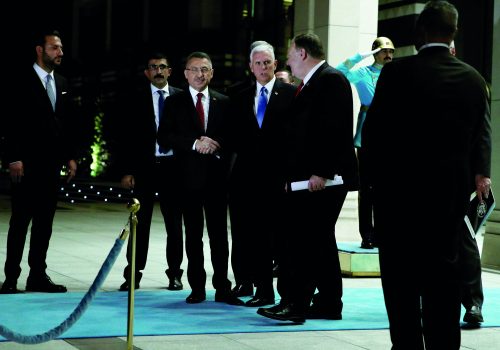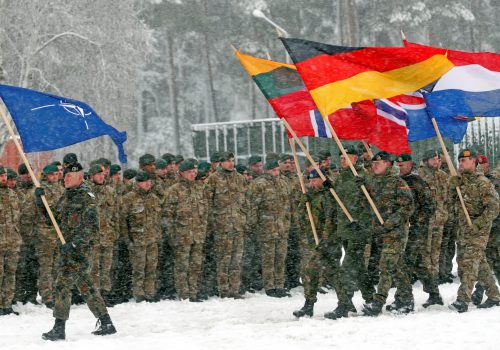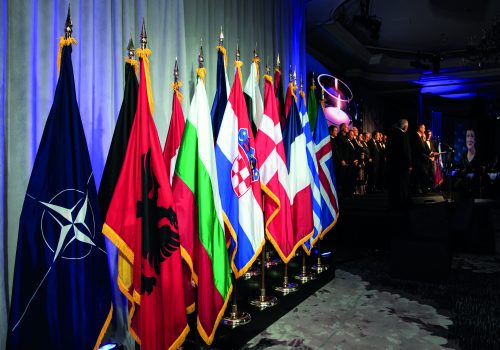South Asia Center
Fostering partnerships with institutions and creating a forum for dialogue between decision makers in South Asia.
The South Asia Center is the Atlantic Council’s hub for work on greater South Asia and the relations among its countries, neighboring regions, the United States, and Europe.
The center aims to foster partnerships with key institutions in the region to serve as a forum for dialogue between decision makers in South Asia and the United States. Its core issues of focus include governance, trade and development, international migratory flows, traditional and non-traditional security, climate sustainability, and energy, with the overarching goal to offer critical analyses and practicable recommendations for policy makers.
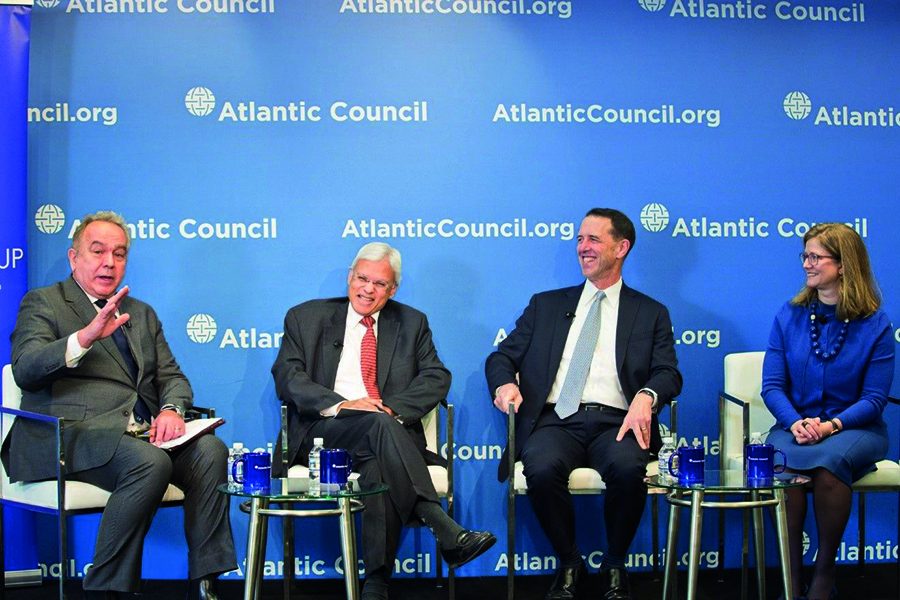
In 2019, the South Asia Center’s body of work underwent a significant transition to reflect the evolving challenges and opportunities of an increasingly multipolar international environment. Regional stakeholders face continued uncertainty regarding the future of the Afghan peace process and role of the NATO coalition, while macroeconomic instability in India and Pakistan has undermined hopes of rapid growth and institutional reform. All of this unfolds as growing sectarian and majoritarian politics in India, Pakistan, and Sri Lanka pose emerging challenges to democratic aspirations in the region and competition between the United States and China for influence in the region continues to grow.
Under the new leadership of Dr. Irfan Nooruddin, the center maintains its longstanding portfolios on regional nuclear security and the role of national news media in diplomacy between India and Pakistan, while new projects focused on the peace process in Afghanistan and the role of South Asia in the global economy.
In October, Ambassador Roya Rahmani joined the center to review the state of Afghanistan’s democratic institutions following the country’s fourth presidential elections. In September, Ambassador S. Jaishankar, foreign minister of India, spoke on India’s evolving approach to international diplomacy and changing strategic partnership with the United States.
In addition to this traditional body of work, the center established an emphasis on regional commerce and trade with the launch of a new US-India Trade Initiative and its landmark report Trade at a Crossroads: A Vision for the US-India Trade Relationship.
Issues of macroeconomic stability in Pakistan loomed in 2019 and remain prominent in the New Year. In October, the South Asia and Global Energy Centers co-hosted Governor of the Central Bank of Pakistan Dr Reza Baqir to discuss the country’s relationship with the International Monetary Fund and ongoing macroeconomic reform efforts.
The South Asia Center will continue to adapt its work to developments in the region through 2020, executing a new program strategy to tackle four broad pillars of essential work: 1) regional commerce and trade, 2) international migratory flows and undefined borders, 3) climate and sustainability, and 4) traditional and non-traditional approaches to regional security. The coming months will include an analysis of illicit financial networks in Afghanistan and their impact on the future peace process, a review of the role of national news media in India-Pakistan bilateral diplomacy, and an examination of India’s evolving role in the global digital economy.
Next:
Read the full report:
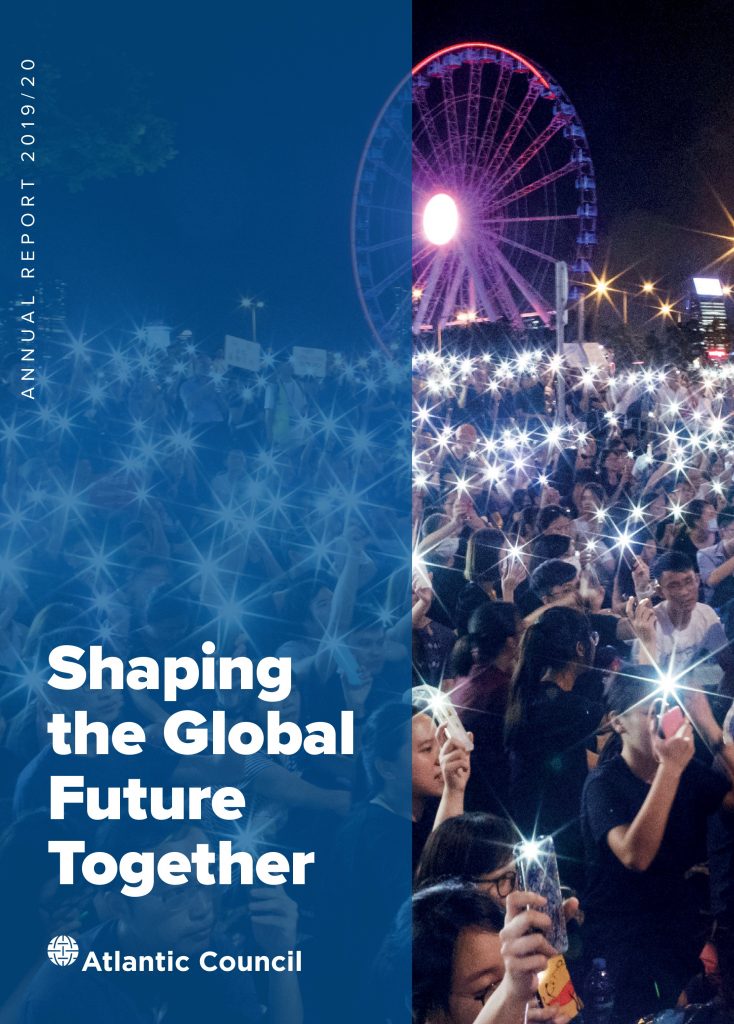
Annual Report 2019/2020
John FW Rogers, Chairman of the Atlantic Council, and Fred Kempe, CEO and President, explain how our past year’s performance, and a dozen years of growth and innovation, helped position us for the historic disruptions of 2020. Read the full introduction.
Image: Image: Local residents attend a protest against a new citizenship law, in New Delhi, India, December 21, 2019. REUTERS/Anushree Fadnavis
